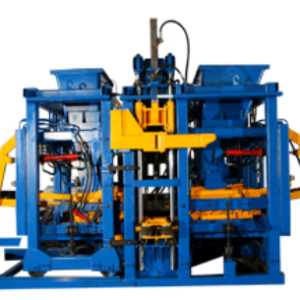Like any other piece of machinery, brick block making machines require regular maintenance and occasional repairs to ensure they operate efficiently and produce high-quality bricks or blocks.
Here are some common maintenance and repair tasks for brick block making machines:
Lubrication: The moving parts of the machine, such as bearings and chains, should be lubricated regularly to prevent wear and tear and ensure smooth operation.
Cleaning: The machine should be cleaned regularly to prevent the buildup of debris and dirt, which can affect the quality of the bricks or blocks produced.
Replacement of worn parts: Some parts of the machine, such as the moulds and press plates, can wear out over time and need to be replaced to ensure consistent quality.
Electrical and mechanical repairs: Electrical and mechanical components of the machine can wear out or break down over time and need to be repaired or replaced.
Calibration: The machine should be calibrated regularly to ensure that it is producing bricks or blocks of the correct size and shape.
Inspection and testing: Regular inspections and testing of the machine can help to identify any potential problems before they become more serious.
It’s important to follow the manufacturer’s guidelines for maintenance and repair to ensure the longevity of the machine and to prevent safety hazards. China brick block making machine It’s also recommended to work with a qualified technician or mechanic for any repairs or maintenance tasks beyond your expertise.
How often should I schedule inspections and testing for the machine?
The frequency of inspections and testing for a brick block making machine will depend on the manufacturer’s recommendations, the intensity of use, and the operating conditions of the machine. However, as a general guideline, it’s recommended to schedule inspections and testing at least once every six months to ensure that the machine is operating correctly and producing bricks or blocks of the desired quality.
During an inspection, the machine should be checked for any signs of wear and damage, including cracks in the moulds or press plates, worn bearings, and loose or damaged electrical connections. The hydraulic and electrical systems should also be checked for leaks or other issues.
Testing should include a check of the output quality, including the size and shape of the bricks or blocks produced, as well as the compressive strength and durability of the finished products. The machine should also be tested for its performance and productivity, including the speed of production and the amount of raw materials used.
In addition to scheduled inspections and testing, it’s important to perform regular visual checks of the machine before and after each use. Look for any signs of damage or wear and address any issues promptly to prevent further damage or safety hazards.
Ultimately, the frequency of inspections and testing should be based on the specific needs and usage of your machine. Consult the manufacturer’s recommendations and work with a qualified technician or mechanic to develop a maintenance and testing schedule that is appropriate for your machine and production needs.
